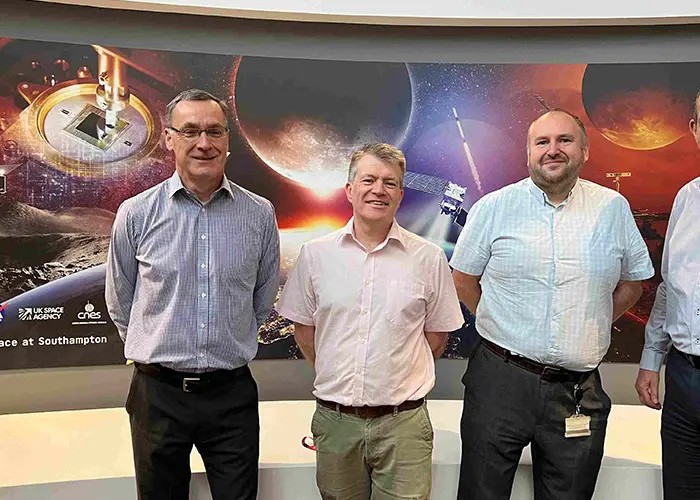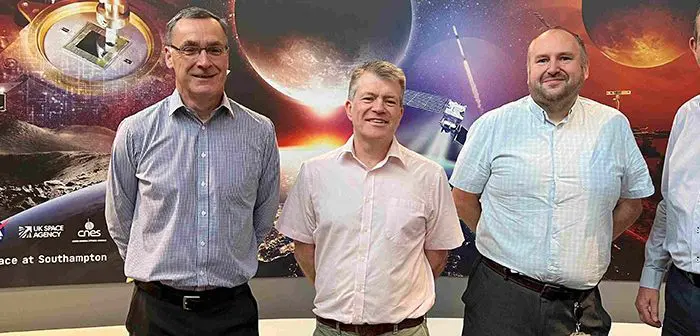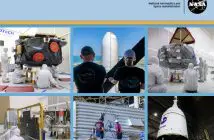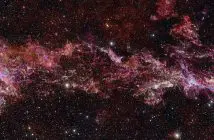
Leonardo, Spiral Blue, Nominal Systems and The Australian National University (ANU), brought together under an iLAuNCH Trailblazer project, are developing a multi-sensor space camera that can provide images back to Earth at high speed that will aid in disaster resilience operations, land management, and defence.
“This partnership will bring first mover advantage to Australian industry and ANU, which is set to deliver a commercially viable product for future satellites,” said iLAuNCH Trailblazer Executive Director, Darin Lovett.
Each of the parties have brought particular skills and capabilities to the project. Leonardo has developed extremely sensitive detectors for shortwave infrared which can show heat on an image as well as seeing the earth’s surface through clouds. This shortwave infrared technology has not yet been integrated into a full camera system for space applications.
The ANU has been developing their Rosella processor as the computer behind the detector that reads in the images and makes them available for other processing.
Spiral Blue has developed an in-space computer tailored for edge processing AI and will be integrating their computer against the ANU processor to capture and process imagery through refining AI, which enables more advanced processing capabilities.
Nominal Systems helps make the integration of this space camera into a full satellite bus seamless by bringing their satellite hardware into the loop design tools, so that at the completion of the project they can offer a fully integrated plug and play space camera.
ANU will further qualify the hardware for spaceflight readiness and develop an optics assembly, to create a ‘ready to fly’ space camera/telescope.
The development and application of these technologies creates a pathway to commercialisation for a space solution that is capable of remote imaging and high-speed data communication.
Once the project is in a full production, the space-ready Rosella controller will operate Leonardo UK’s mercury-cadmium-telluride shortwave infrared detectors on commercial satellites. Space qualification opens doors to a USD4 billion satellite Earth Observation market by 2025, as well as USD2 billion in space astronomy missions.
Directly interfacing Rosella with GPU-based AI platforms, such as Spiral Blue’s SpaceEdge hardware, enables automated processing and downlink of critical data at high speed, in a low-bandwidth environment.
“Demonstrating the Spiral Blue product as part of a fully integrated turn-key sensor and data management system, builds on existing commercial capability and fills a current gap in the market for small formfactor value-added AI assisted data product delivery,” said Spiral Blue Founder Taofiq Huq.
The Rosella will also gain access to a global market and end user base for an advanced space infrared detector package, through Nominal System’s online vendor marketplace and digital twin platform for space missions.
“This program provides an opportunity to demonstrate Nominals Systems operational support and modelling framework within a powerful mission framework that is underrepresented internationally and unprecedented in Australia,” said Nominal Systems, Chief Technology Officer, Brenton Smith.





